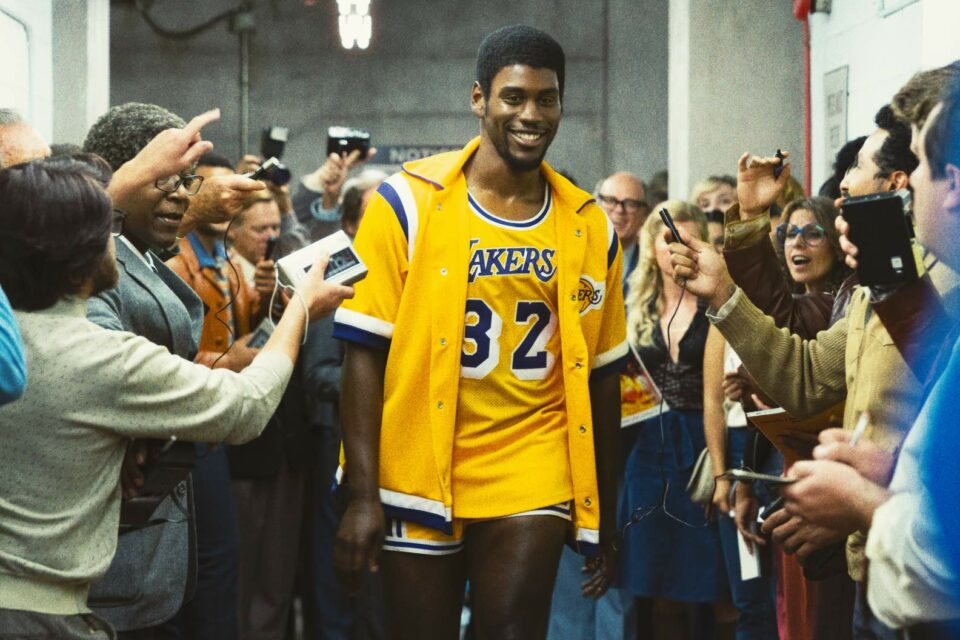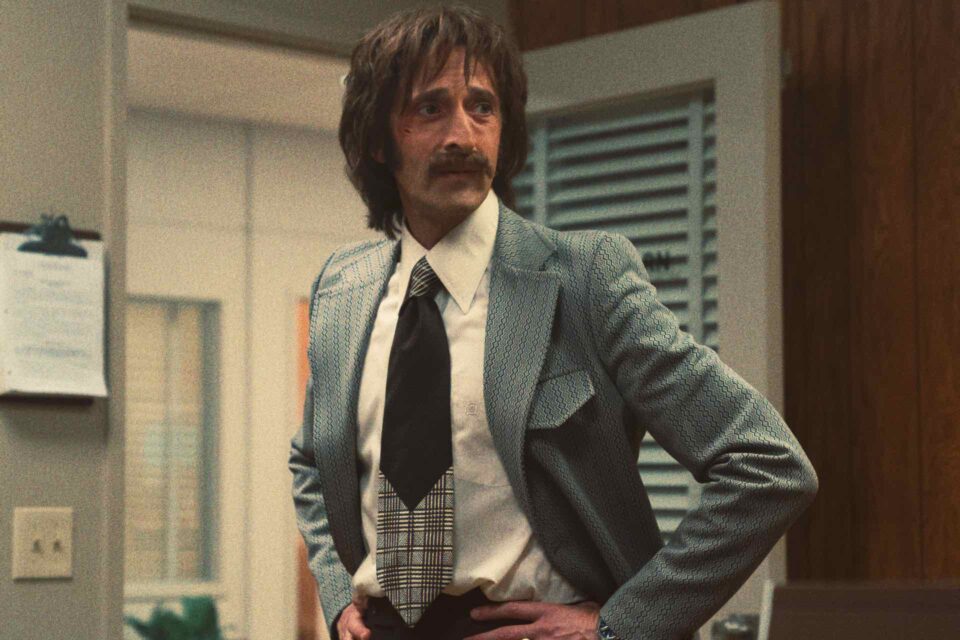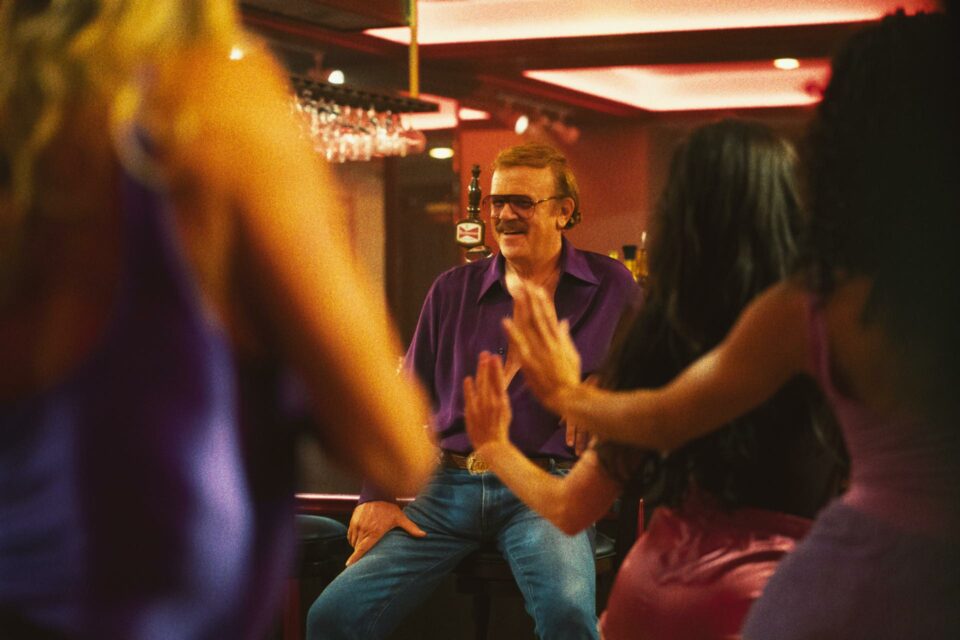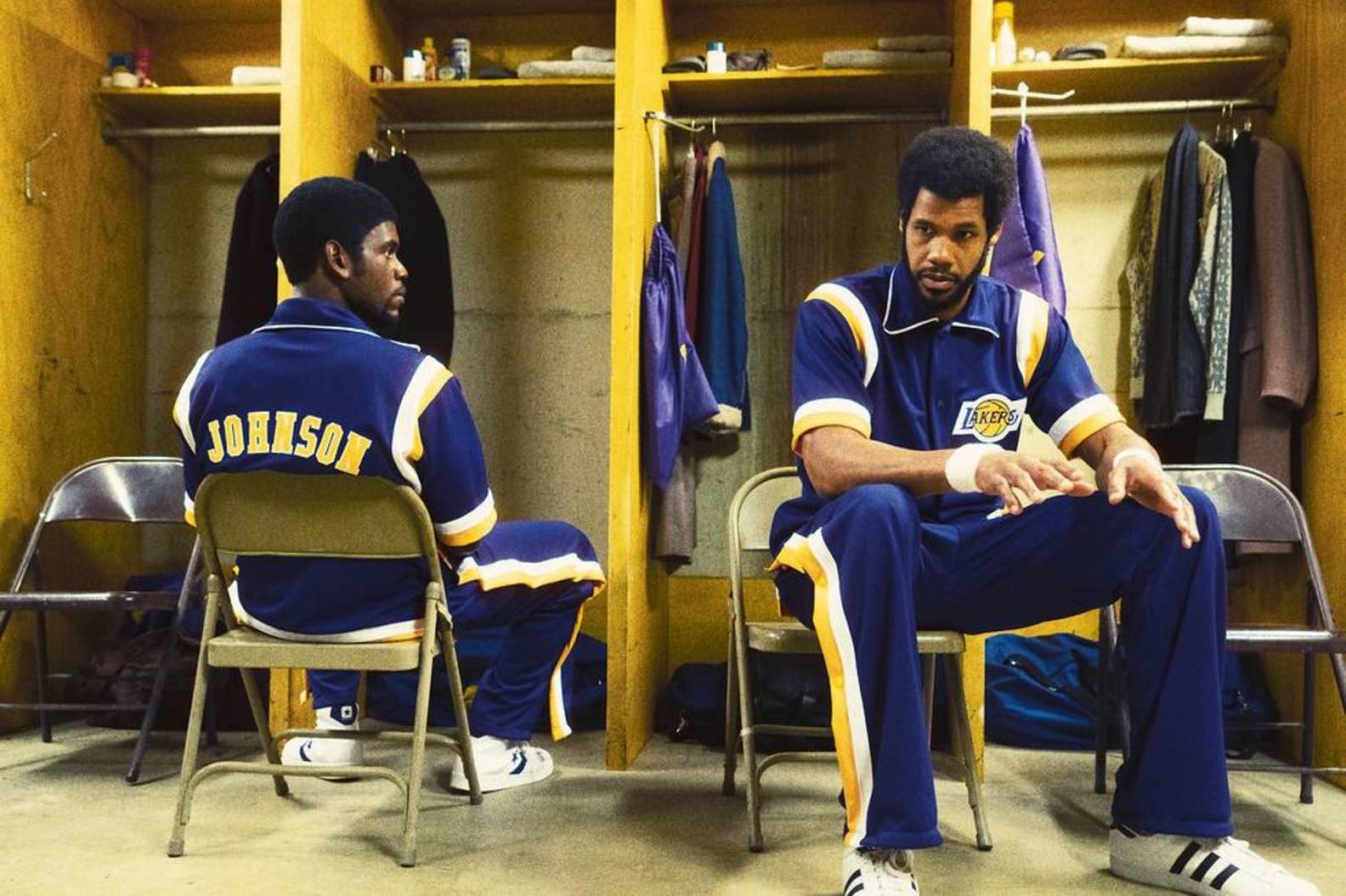In this, the final quarter of the first season of HBO’s sporting dramedy Winning Time: The Rise of the Lakers Dynasty and its study of the Showtime era start of the Los Angeles basketball team, we look at one of its central players: music supervisor Gabe Hilfer. Along with Adam McKay series composers Nicholas Britell and Robert Glasper, Hilfer—an alumnus of the music team that brought you Danny McBride’s Eastbound & Down, Vice Principals, and The Righteous Gemstones—is responsible for the funky sonic bedrock below the ’80s LA basketball fairy tale.
By assigning Magic Johnson uptempo, era-appropriate grooves (Bootsy Collins’ “Bootzilla,” Sugarhill Gang’s “Rapper's Delight”), Kareem Abdul-Jabbar a ruminative jazz mix (“Pieces of a Man” by Gil Scott-Heron, along with Glasper’s fresh instrumental interludes), and Lakers front office types such as Pat Riley and Dr. Jerry Buss their own sound beds, Hilfer is this winning team’s point guard.
Speaking to those same famed real-life names, there’s also been a shift in the dialogue surrounding some of those characterizations as of late. Both Abdul-Jabbar and one-time coach Jerry West have contradicted the actions and accuracy of McKay and his writing team’s portrayal of what occurred on the way to the Lakers’ Showtime era—particularly in relationship to the liberties they took with West’s character. Though this has nothing to do with Hilfer’s musical dues, it does speak volumes to Winning Time’s prioritization of groove over biography.
“They pitched me the idea of this show about the Lakers for HBO that it was going to be insane, and did I want in. We started exchanging mixtapes of what I had in mind immediately, and it was nothing but love, love, love from there.”
“We actually did the pilot to Winning Time pre-pandemic, so that comes before we started doing Don’t Look Now,” states Hilfer in relation to McKay’s 2021 apocalyptic climate-control satire and the lineage of his interaction with the director/writer. “They pitched me the idea of this show about the Lakers for HBO that it was going to be insane, and did I want in.” A rabid fan of basketball as well as of McKay and his brand of storytelling, Hilfer jumped through hoops to tell the musical story of a Los Angeles metaphorically on fire. “We started exchanging mixtapes of what I had in mind immediately, and it was nothing but love, love, love from there.”
Going into a basketball-related story, Lakers or not, what’s most impressive about Hilfer’s rapid-fire and funky sound collage is that it moves in lockstep rhythm—driving, bouncing—with all of its on-screen action, ruminatively emotional and highly physical. Now that may sound like a no-brainer—that’s what it’s supposed to do. But Hilfer is a man who trafficks in deeply thoughtful action television with the likes of The Walking Dead and Ozark under his championship belt.

“My relationship with Nick Britell, as well as Robert Glasper, makes the handoff between score and source easier,” Hilfer says. “There were long conversations about flow and instrumentation and how to achieve speed and dynamism as to what is on the screen. Fundamentally, however, we just followed how it was shot—frenetic, highly stylized, chaotic, all done with differing stocks of film to go with its different perspectives. That set the table for us for real fun.”
“We’re bringing 1979 and 1980 alive. The costumes, set designs, and the hair styles that our team so painstakingly put together—to all that, we wanted to make music that was equally as integral and authentic.”
Yes, there are dramatic and deeply moving moments and interludes among its characters—mothers and sons, husbands and wives, lovers and deceived partners—but most of all, Winning Time is all about the balling. “Ultimately, music—especially source music—elevates and allows us to appreciate how we’re watching something of a period piece,” says Hilfer. “We’re bringing 1979 and 1980 alive. The costumes, set designs, and the hair styles that our team so painstakingly put together—to all that, we wanted to make music that was equally as integral and authentic.”
Winning Time is authentic in its musicality with more bounce to the ounce and knee-deep Funkadelic-ness. Yet it avoids the pitfalls of being retrophonic and nothing more than an oldies jukebox. Instead, Hilfer’s needle drops are on the heightened emotions and actions of each 1979 or 1980 scene rather than falling to its vintage alone. Hilfer isn’t merely coasting. “As a music supervisor putting cool songs in films and television, I’m always looking to give lesser-known songs and any artist from any given moment exposure. It would be easy enough to just find a list of the greatest hits from 1979 and spin those. Some directors and producers do want the biggest hit in the world from a given time period, and will spare no expense in getting it. The crew of Winning Time, however, are receptive to fresh ideas. That is, no joke, music to my ears—that someone’s receptive to the rare nuggets that I have at my disposal, that I’ve been dying to use.


“For instance,” he adds, “Lou Rawls’ version of ‘Bring It on Home,’ the old Sam Cooke song. We use that in the pilot episode when they flip the coin during the draft and the fate of the Lakers changes by choosing Magic Johnson. That track was produced by David Axelrod—very cinematic, and Rawls’ voice was silken smooth. I sent that tape in early, and they put that track in almost immediately. It really just encapsulates that moment.” One song that doesn’t come from 1979 or ’80, yet whose drive fulfills the feel of Winning Time, is its theme song, “My Favorite Mutiny,” a 2006 song from The Coup featuring Talib Kweli and Black Thought. “That came in as a temp track, but ultimately felt right aesthetically. Its attitude embodies the feel of Winning Time.”
Other songs, be it Hilfer selections such as “Pieces of a Man” or those written and played by Robert Glasper to suit Kareem’s quiet spirituality and dedication to Black activist causes, stem from attitude and vibe over vintage. “We’re painting who these characters are beyond their public personas, whether it’s as a thinker such as Kareem, or someone loving their life such as Magic,” states Hilfer. “That’s what I think this show does best—present the complex lives of truly complicated characters that everyone thought they knew. Our music helps to portray the very human side to all of these players that we grew up with, be it Magic’s upbringing with his parents, or the swinging ways of Dr. [Jerry] Buss, or the struggles of a man such as Abdul-Jabbar living as an activist. We wanted to be realistic to the inner and outer lives of each of Winning Time’s characters.” FL









